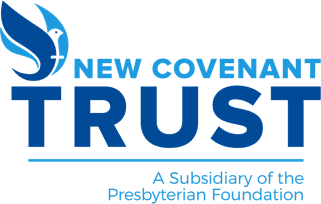
As the year draws to a close, many individuals and families are thinking about how to make the most of their charitable giving. Whether you’re aiming to maximize tax benefits or align your giving with deeply held values, there are smart strategies to consider beyond a direct gift of cash.
Tools like gifts of appreciated stock, Qualified Charitable Distributions (QCDs), and Donor-Advised Funds (DAFs), offer flexible, tax-efficient ways to support the causes you care about. It a good time to explore how these options can help you give with purpose while optimizing your financial plan.
Gifts of Stock
Anytime you contribute appreciated securities which you have held for more than a year directly to a qualified charitable organization, you can avoid paying capital gains taxes on the growth of those investments.
For example, let’s say you intend to donate 20 shares of stock, valued at $1,000 to your favorite charity. You purchased the stock 5 years ago, when the 20 shares were worth $500. When the shares are given directly to the charity, you may deduct the full fair market value of the stock — $1,000 — and you will not pay any tax on the growth of the stock, as you would if you withdrew and received the stock yourself. With the capital gains tax rate at 15%-20%, that can add up to a significant tax savings when you file your return.
Qualified Charitable Distributions (QCDs) from an IRA
Similarly, you can make a tax-smart gift to your favorite charity with a distribution from your IRA, if certain conditions are met:
- The distribution must come from a traditional IRA — not a SEP or SIMPLE IRA, 401(k), or 403(b) — and it must be an otherwise taxable distribution;
- The distribution must go directly from the IRA custodian to the charity;
- The charity must be eligible to receive tax-deductible contributions, typically a 501(c)3 public charity, church, or religious organization; and
- The IRA owner must be at least 70 ½ years old when the distribution is made.
There are other limits on these types of gifts to be aware of as well.
In 2024, total QCDs must not exceed $105,000 per person, and they can not be made to a Donor-Advised Fund (more on that later). The good news, however, is that a QCD does count toward your Required Minimum Distribution (RMD) if you are required to take one, and they can also be made from an inherited IRA.
Donor-Advised Funds (DAFs)
While Donor-Advised Funds are not eligible to receive a QCD, they are a great way to plan and organize your charitable giving, and they can be especially helpful in lowering your tax bill at the end of the year.
DAFs function much like a charitable checking account. They are held by a charitable sponsor organization that manages the funds. Whenever you make an irrevocable gift to a DAF, you are eligible for a charitable deduction, but you can decide later where to direct the funds by making a grant request to the DAF sponsor.
This means that in any year, but especially a year in which perhaps you received more income than you anticipated through an inheritance, severance, bonus or any other unexpected windfall, you can buffer the resulting increase in income tax for that year by making a gift to DAF.
You can choose the year in which you are eligible for a charitable deduction, with no need to decide right away the charity you ultimately want to benefit. Even better, you can typically donate a variety of assets to a DAF for additional tax benefits, including gifts of appreciated stock.
As part of the Presbyterian Church (U.S.A.) Foundation, New Covenant Trust Company’s clients have access its many resources. The Presbyterian Foundation makes it simple to open and fund a Donor Advised Fund for as little as $2,500. You can learn more and set up your account online here: Donor-Advised Funds – Presbyterian Foundation.
As always, NCTC is here to provide guidance and answer questions about all your charitable giving options, now or at any time of year. Call us at 800-858-6127, Option 6.
